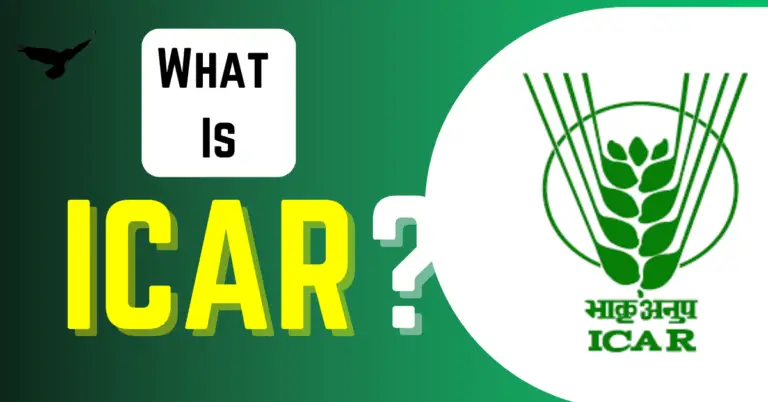Introduction
The ICAR Exam, formally known as the Indian Council of Agricultural Research (ICAR) Entrance Exam, is a significant national-level test conducted in India. It is designed to facilitate admissions to undergraduate, postgraduate, and doctoral programs in agriculture and allied sciences. Administered by the National Testing Agency (NTA), the ICAR Exam is a crucial stepping stone for students aspiring to build careers in agriculture, horticulture, forestry, fisheries, and related fields. In this article, you will get to know about – What is ICAR Exam?
Purpose of the ICAR Exam
The primary aim of the ICAR Exam is to identify and admit talented students into various agricultural universities and institutions across India. The exam ensures that students with a keen interest and aptitude for agricultural sciences receive the opportunity to pursue higher education and contribute to the country’s agricultural development.
Eligibility Criteria
1. Undergraduate Programs (AIEEA-UG)
- Qualification: Candidates must have completed their 10+2 or equivalent with Physics, Chemistry, and Biology/Mathematics/Agriculture.
- Age Limit: The candidate must be at least 16 years old as of the specified date.
2. Postgraduate Programs (AIEEA-PG)
- Qualification: A Bachelor’s degree in Agriculture, Horticulture, Forestry, Fisheries, or related fields from a recognized university.
- Age Limit: The candidate must be at least 19 years old as of the specified date.
3. Doctoral Programs (AICE-JRF/SRF)
- Qualification: A Master’s degree in the relevant field of Agriculture from a recognized university.
- Age Limit: The candidate must be at least 20 years old as of the specified date.
Exam Structure
1. AIEEA-UG (Undergraduate)
- Subjects: Physics, Chemistry, Biology/Agriculture or Mathematics
- Mode: Computer-Based Test (CBT)
- Duration: 2.5 hours
- Question Type: Multiple Choice Questions (MCQs)
- Total Marks: 600
- Marking Scheme: +4 for each correct answer, -1 for each incorrect answer
2. AIEEA-PG (Postgraduate)
- Subjects: Depending on the chosen subject group
- Mode: Computer-Based Test (CBT)
- Duration: 2 hours
- Question Type: Multiple Choice Questions (MCQs)
- Total Marks: 480
- Marking Scheme: +4 for each correct answer, -1 for each incorrect answer
3. AICE-JRF/SRF (Doctoral)
- Subjects: Based on the chosen discipline
- Mode: Computer-Based Test (CBT)
- Duration: 2 hours
- Question Type: Multiple Choice Questions (MCQs)
- Total Marks: 200
- Marking Scheme: +1 for each correct answer, -0.25 for each incorrect answer
Preparation Tips
1. Understand the Syllabus and Exam Pattern
Familiarize yourself with the detailed syllabus and the structure of the exam. Knowing the weightage of different sections can help prioritize study areas.
2. Create a Study Plan
Develop a realistic and structured study schedule that covers all the topics. Allocate more time to subjects and areas where you feel less confident.
3. Use Quality Study Materials
Select recommended textbooks, reference books, and online resources that provide comprehensive coverage of the syllabus.
4. Practice Regularly
Solve previous years’ question papers and take mock tests to get accustomed to the exam format and time management.
5. Revise Thoroughly
Regular revision is crucial to retain information. Make concise notes for last-minute revision.
6. Stay Healthy and Stress-Free
Maintain a healthy lifestyle with proper diet, sleep, and regular breaks during study sessions to keep stress levels in check.
Conclusion
The ICAR Exam is a gateway to prestigious agricultural education and research opportunities in India. With a clear understanding of the exam structure, eligibility criteria, and effective preparation strategies, candidates can excel in the ICAR Exam and pave the way for a rewarding career in agriculture and allied sciences.
